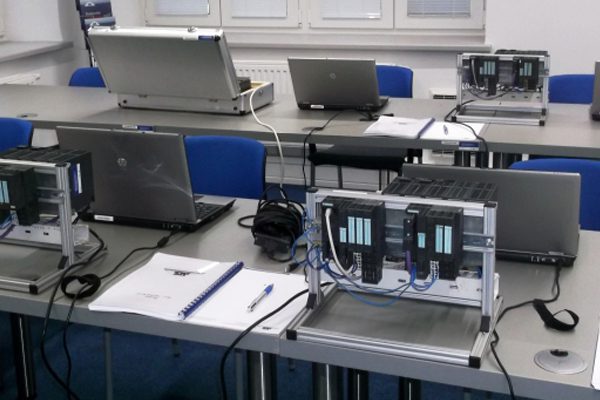
Target Group
This course is designed for maintenance/operator personnel who will be working with PLCs for the first time, with a requirement for understanding of what PLC’s are, how they work and their limitations. Understand their uses, functions and control using programming software.
(Pre) Knowledge
To join this course, a basic knowledge of Windows XP would be an advantage. No previous PLC experience is required as the courses starts at a basic level.
Methods
ATS courses are given by highly qualified trainers, with practical knowledge, in professional ATS training centres or On-Site. Prior to the course an intake conversation can take place to define the participant(s)and the company’s requirements. Presentations (theory and examples) as well as practical exercises bring the courses to life. ATS courses are interactive, the trainer will always make sure the training contents link back to your situation.
Global Contents
Maintenance/operator services are often confronted with equipment from several manufacturers. This course recognises that maintenance/operator personnel may not have had any previous experience with PLCs so they cannot build up a profound technical knowledge of all the equipment to be maintained. One needs to have sufficient knowledge of the equipment, coupled with knowledge of the installation to be able to diagnose the problem and then solve the problem.
With regard to PLCs and programming terminals, the maintenance engineer/operator needs to be able to access specific parts of the program and to examine the I/O status. Programming and documenting the program is of less importance. The maintenance engineers should be capable of making small changes to the program.
Problems are most likely to occur with the installation itself and this is reflected in the PLC. For instance, a defective sensor, a badly working cylinder etc. These faults can be investigated via the programming terminal and the signal status can be presented dynamically. This course will give the engineer/operator sufficient confidence and skill to connect a programming terminal to the PLC and obtain information on faults and general operating information.
Following the course, the maintenance engineer/operator should be capable of executing the following actions:
Learn the basic principals of how a PLC works.
Understand how Input & Output modules are used with Switches & Indicators.
Learn the role of the process and monitor the run-time behaviour of the system as a whole.
Gain an understanding of system issues such as CPU memory & Fault diagnostics.
To determine that the signal of the ‘suspected’ unit will show at the correct PLC reference. One should measure here with a universal meter.
To start up the programming terminal & communicate with the PLC.
The maintenance engineer will also be able to read the documentation, understand the structure of the PLC and be aware of the most commonly used PLC instructions.
Specific Contents
PLC Topics:
PLC – Introduction to PLCs

Fecha: Por solicitud
Ciudad: Spain
Precio:
Actualmente no ofrecemos este curso en español, pero sí en holandés e inglés. A continuación encontrará el enlace de registro para acceder a este curso en dichos idiomas.
Cursos en Control



